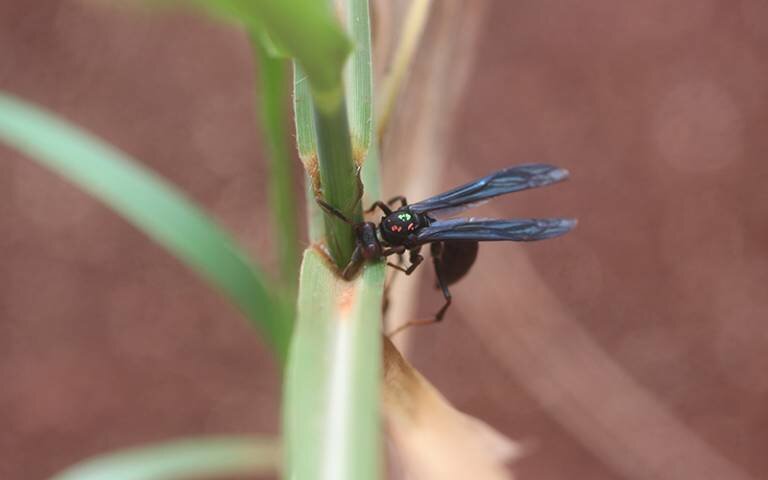Wasps as an effective pest control for agriculture

By Surya Zeeb
Published: November 26, 2019
Category: The Organic & Non-GMO Report Newsletter, Pesticides
Common wasp species could be valuable at sustainably managing crop pests, finds a new University College London (UCL)-led experimental study in Brazil.
The study, published in Proceedings of the Royal Society B, found that social wasps are effective predators that can manage pests on two high-value crops, corn and sugarcane.
As wasps are found all over the globe, they could easily be used on small or large-scale farms to control a range of common pests.
“There’s a global need for more sustainable methods to control agricultural pests, to reduce over-reliance on pesticides or imported pest controllers. Wasps are very common, but understudied, so here we’re providing important evidence of their economic value as pest controllers,” said the study’s lead author, Dr. Robin Southon (UCL Centre for Biodiversity & Environmental Research).
The study, conducted in collaboration with researchers at São Paulo State University and Universidade de São Paulo in Brazil, is the first controlled experiment in semi-natural conditions on the subject, as it was done on an outdoor research site.
Corn was infested with a common pest, the fall army worm, while sugarcane was infested with sugarcane borer. The researchers introduced the social paper wasp, a hunting wasp common to the area.
The wasps effectively reduced the pest populations, and the plants suffered less damage when wasps were present. Encouragingly, the researchers found that even when the pests had bored inside the plants without being present on the plant surface, the wasps were able to go into the plant and pull out the pests.
The researchers say they hope to continue their work with larger trials in active agricultural fields, but for now they have established that wasps should be considered more seriously as pest controllers, and could be an important part of an integrated pest management scheme.
“We’re not saying that farmers need to stop what they’re doing and start using wasps instead of their current pest management strategies; rather, we’re adding a new tool to the toolkit, as it can often be most effective to use a multi-faceted approach. Social wasps like the ones we studied are generalist hunters, so complementing existing approaches with wasps could reduce the likelihood of a pest evolving resistance to a particular pesticide or biocontrol agent,” Dr. Southon said.
Source: Phys.org
To view source article, visit:




